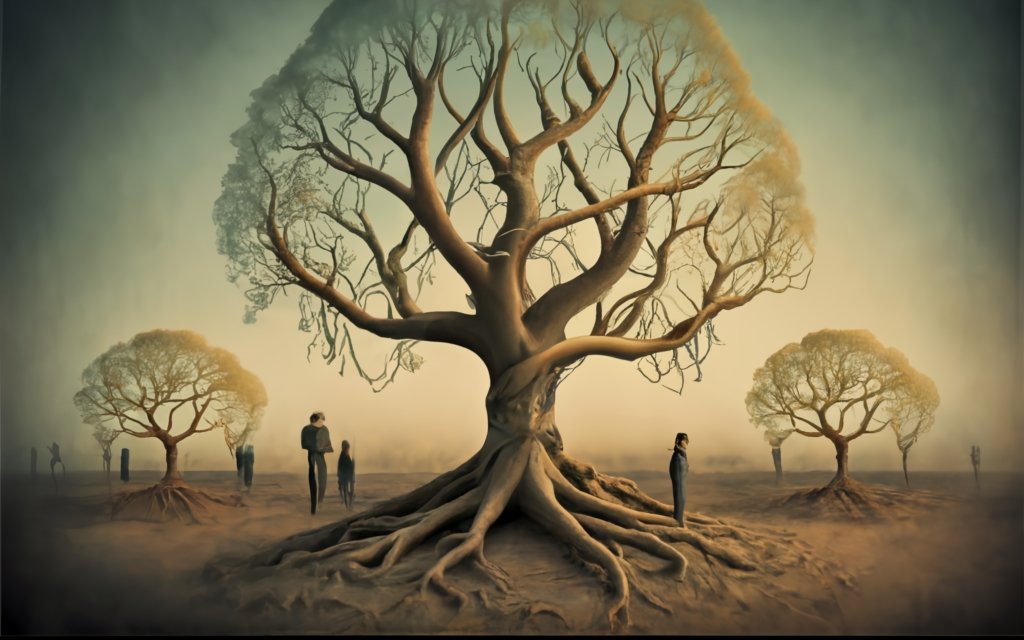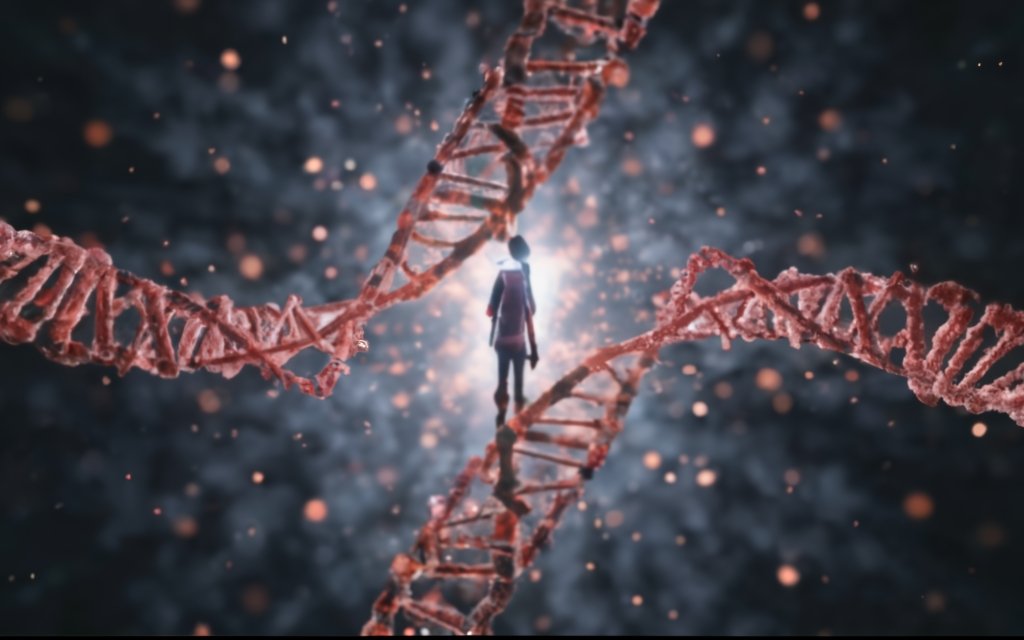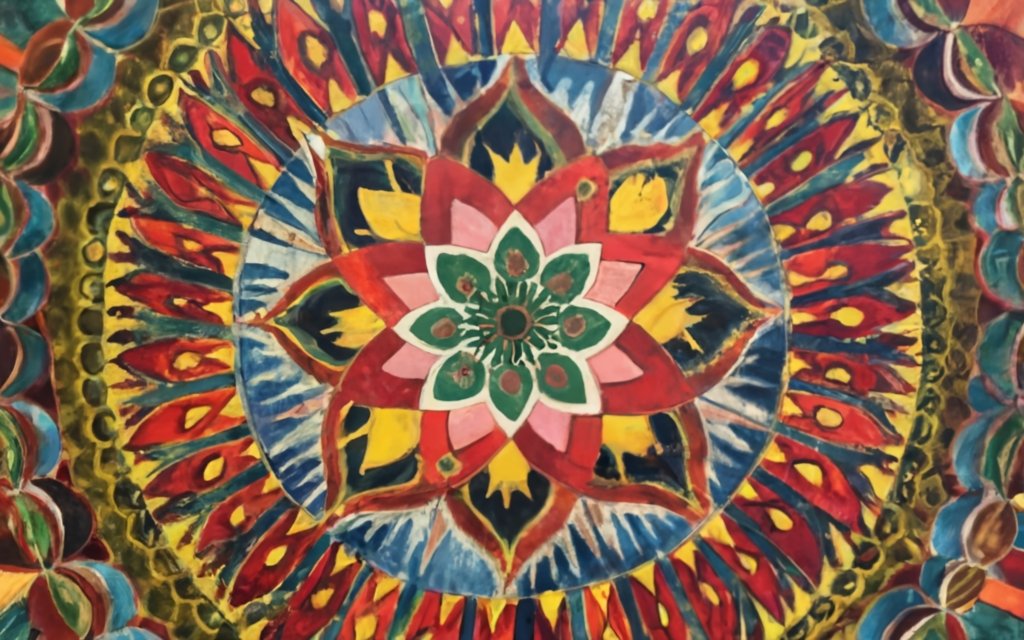Ancestral Healing: An IFS Approach to Unveiling Legacy Burdens
Exploring the Interplay Between Legacy Burdens and Spirituality
In the realm of spirituality, there exists a profound connection between our past and present, a connection that transcends conventional understanding. An intriguing aspect of this connection is the notion of legacy burdens, which can be likened to ancestral imprints that impact our spiritual journey and overall well-being. In this exploration, we delve into the intricacies of legacy burdens, uncovering their influence on our spiritual path and mental wellness.
Understanding Legacy Burdens: An Inherited Spiritual Weight

Legacy Burdens Defined Legacy burdens are the silent, inherited echoes of our ancestors’ experiences, weaving through the tapestry of our lives. Much like the scent of cherry blossoms for those rats in the study, these burdens can cast a long shadow over our existence, often without us consciously recognizing their presence.
Legacy Burdens in the Shadows In many families and cultures, legacy burdens remain unspoken, yet deeply felt. These burdens, from racism to homophobia, are the undercurrents that can divide and dehumanize us, seemingly without reason. The palpable weight of these burdens affects our spiritual journey, shaping the lens through which we view the world.
Internal Family Systems (IFS): A Tool for Healing

The IFS Model Dr. Richard Schwartz’s Internal Family Systems (IFS) provides a unique framework for understanding and addressing legacy burdens. IFS postulates that we carry within us a multitude of distinct inner parts, each with its own complex history and role in our psyche. A legacy burden, then, is a part inherited from our lineage that serves little purpose in our current lives.
A Dialogue with Legacy Burdens Engaging in a dialogue with these inherited burdens is the key to unlocking their hold on our spirituality. For example, when examining a fear seemingly without reason, we may find that it stems from our ancestors’ experiences, such as the trauma of the Holocaust. Through dialogue, we can transform these burdens into a force that serves our well-being.
Intergenerational Trauma: Rewriting Our DNA

Understanding Trauma Trauma, as a concept, goes beyond mere external events. It encompasses anything that overwhelms our nervous system’s capacity to cope. Whether it’s a car accident or emotional neglect, trauma leaves an indelible mark on our beings.
The Epigenetic Connection The field of epigenetics has unveiled a profound revelation: trauma has the power to rewire our DNA. This rewired genetic code is then passed down through generations. In practical terms, this means that our DNA, like my grandmother’s post-Holocaust DNA, may prime us for heightened fear responses to seemingly innocuous triggers.
The Ripple Effect of Ancestral Trauma Consider the study on rats at Emory University, revealing that a fear response to the smell of cherry blossoms persisted for seven generations. Our legacy burdens may have similar ripple effects, shaping our responses to the world and impacting our spiritual journey.
Seeking the Legacy Burdens in Your Life
Identifying Inherited Beliefs To uncover your legacy burdens, it’s essential to reflect on the beliefs you’ve inherited from your family. Do these beliefs align with your current circumstances, or do they seem out of place?
Recognizing Familial Patterns Patterns often hold the key to legacy burdens. These patterns may span generations and manifest as shared struggles, such as social anxiety, across your family.
Unearthing Past Traumas Exploring your family’s history can help you identify the traumas that have left a mark on your lineage. By recognizing these origins, you can begin the journey to heal and release the associated legacy burdens.
The Path to Healing: IFS Therapy
If you wish to embark on the transformative journey of healing your legacy burdens, consider working with an IFS therapist or coach. These professionals possess the expertise to guide you through the process, providing a safe and responsible space for the release of these ancestral weights.
Unlocking the Essence of Spiritual Freedom
Understanding and addressing legacy burdens is just one facet of a profound spiritual journey. In the vast landscape of spirituality, there is a diverse range of beliefs and practices, each offering unique insights and experiences. Let’s explore how spirituality manifests in different forms and how it intertwines with our quest for inner peace and enlightenment.
The Spectrum of Spiritual Exploration

Spirituality is not a monolithic concept but rather a multifaceted tapestry of beliefs and practices. From the traditional to the contemporary, it encompasses various dimensions:
- Religion and Spirituality: Some find spirituality within the structured frameworks of organized religion, where rituals, texts, and community play pivotal roles. Others seek a more personal and flexible connection to the divine, embracing a spirituality that transcends the boundaries of religious dogma.
- Meditation and Mindfulness: The practice of meditation and mindfulness is a gateway to spiritual awakening. By turning inward and attuning to the present moment, individuals can access deeper layers of consciousness and experience profound spiritual insights.
- Exploration of the Self: For many, spirituality is a journey of self-discovery. It involves exploring the depths of one’s own being, understanding the essence of “I am,” and uncovering the inner realms of consciousness.
- Nature and the Elements: Nature often serves as a spiritual canvas, where individuals connect with the elements, such as earth, water, fire, and air. This connection allows for a deep, spiritual communion with the natural world.
- Psychology and Inner Healing: Psychology can also be a gateway to spirituality, as it unravels the mysteries of the human mind and offers tools for inner healing. The interplay between spirituality and psychology can be a profound source of spiritual growth.
The Fluidity of Spirituality and Religion
In this exploration, it’s essential to acknowledge that spirituality and religion are not always synonymous. While many find spiritual fulfillment within the confines of religious institutions, others choose a more eclectic and individualized path. For some, spirituality transcends the boundaries of religious labels, fostering a deep connection to the divine that is both personal and boundless.
The Essence of Spiritual Freedom

Spirituality is, at its core, a journey towards spiritual freedom. It’s about liberation from the burdens of the past, the constraints of dogma, and the confines of the ego. It’s a quest for a higher consciousness, a deeper understanding of self, and a profound connection to the world and the universe.
In this quest for spiritual freedom, legacy burdens become the stepping stones towards healing and self-realization. By addressing these ancestral imprints, we free ourselves from their grip, enabling us to journey deeper into the realms of spirituality.
Embracing the Spiritual Path
To truly unlock the essence of spirituality, one must embrace the diversity of beliefs and practices that resonate with their individual journey. Whether you find spiritual solace in religious rituals, meditation, nature, self-exploration, or a combination of these, the path is yours to chart.
As you delve into your spiritual exploration, remember that understanding and addressing legacy burdens can be a profound way to unburden your soul and allow your spirituality to flourish. It is a journey towards holistic well-being, self-discovery, and spiritual freedom that can transform not only your life but the lives of generations to come.
Conclusion: The Intersection of Legacy Burdens and Spirituality

The intricate interplay between legacy burdens and spirituality is a profound testament to the depths of our inner worlds. As we unravel the echoes of our ancestors’ experiences, we simultaneously embark on a spiritual journey that transcends conventional boundaries. Legacy burdens, like ancestral shadows, cast a long but not unbreakable veil over our spiritual paths. By acknowledging and addressing these burdens, we pave the way for spiritual freedom, inner peace, and profound self-discovery.
In our diverse and dynamic spiritual landscape, the spectrum of beliefs and practices offers a multitude of paths to explore. Whether you find solace in the structured confines of religion, the serenity of meditation, the communion with nature, or the depths of self-exploration, your spiritual journey is a unique and personal odyssey.
Unveiling Legacy Burdens: Frequently Asked Questions
While addressing the intricate relationship between legacy burdens and spirituality, several questions may arise:
1. How can I identify my legacy burdens?
Legacy burdens often manifest as unexplained fears, limiting beliefs, and recurring patterns in your life. Reflecting on the beliefs, patterns, and traumas in your family history can help you identify them.
2. Can spirituality help in healing legacy burdens?
Yes, spirituality, in its various forms, provides a profound framework for healing and transformation. Many individuals find solace, guidance, and strength in their spiritual practices as they work through their legacy burdens.
3. What if I’m not religious but still want to explore spirituality?
You can certainly explore spirituality without adhering to a particular religious doctrine. Meditation, mindfulness, nature-based practices, and self-discovery are just a few avenues for connecting with your spiritual self.
4. How do I choose the right spiritual path for me?
Your spiritual path is a deeply personal journey. It’s essential to explore different practices and beliefs to find what resonates with your inner self. Be open to new experiences and trust your intuition.
5. Can addressing legacy burdens benefit future generations?
Absolutely. Healing and releasing legacy burdens can break the cycle of intergenerational trauma, allowing for a brighter, more spiritually enlightened future for your descendants.
6. Is there a universal definition of spirituality?
Spirituality is a highly individualized concept, and there is no one-size-fits-all definition. It varies greatly depending on personal beliefs, experiences, and cultural backgrounds.
In your quest for spiritual freedom, remember that understanding and addressing legacy burdens can serve as a transformative catalyst. By acknowledging the ancestral imprints that shape your life, you not only free yourself from their influence but also contribute to a more enlightened and spiritually aware world. It’s a journey that transcends time and connects you to the essence of your spiritual self.







